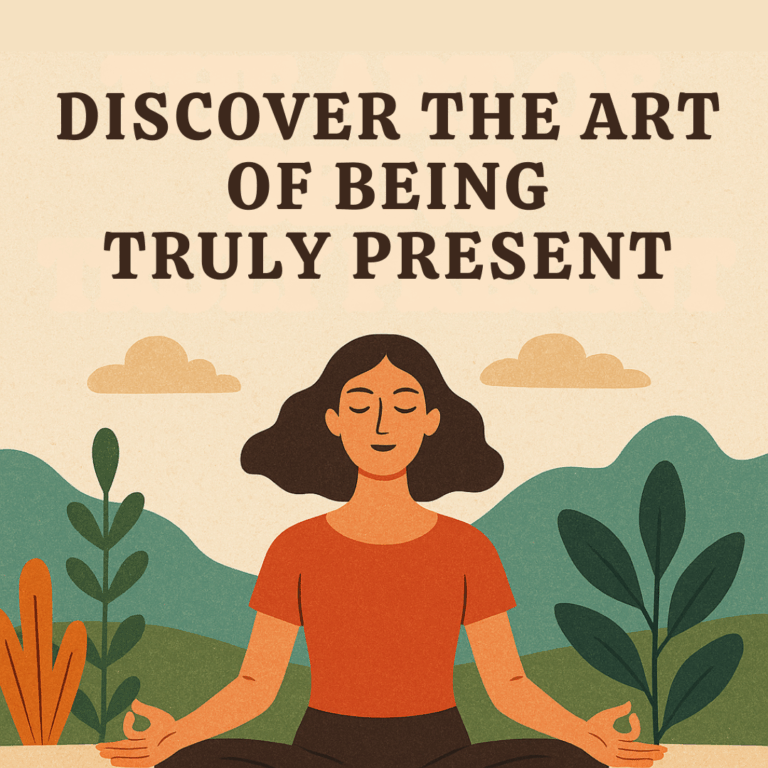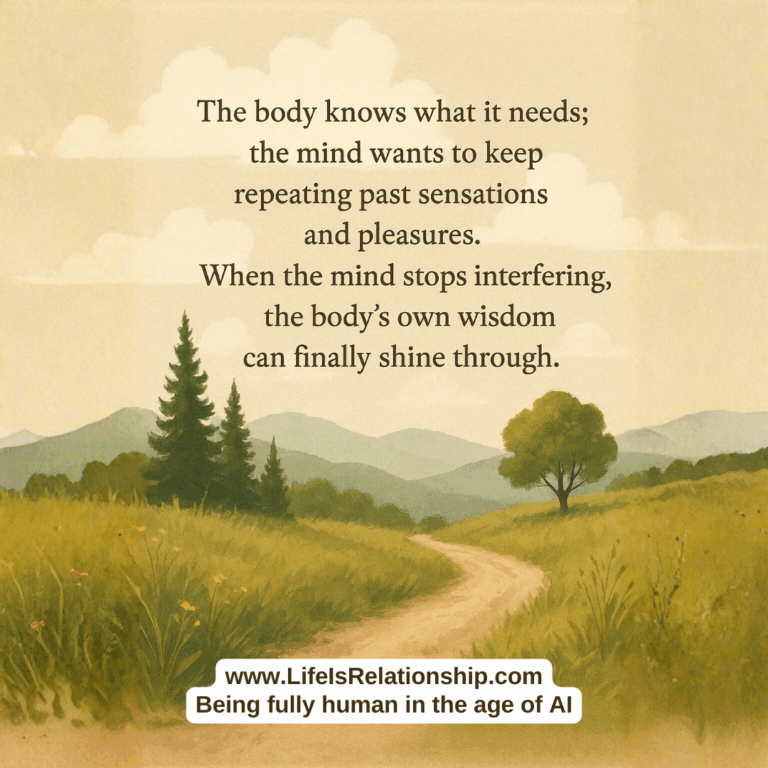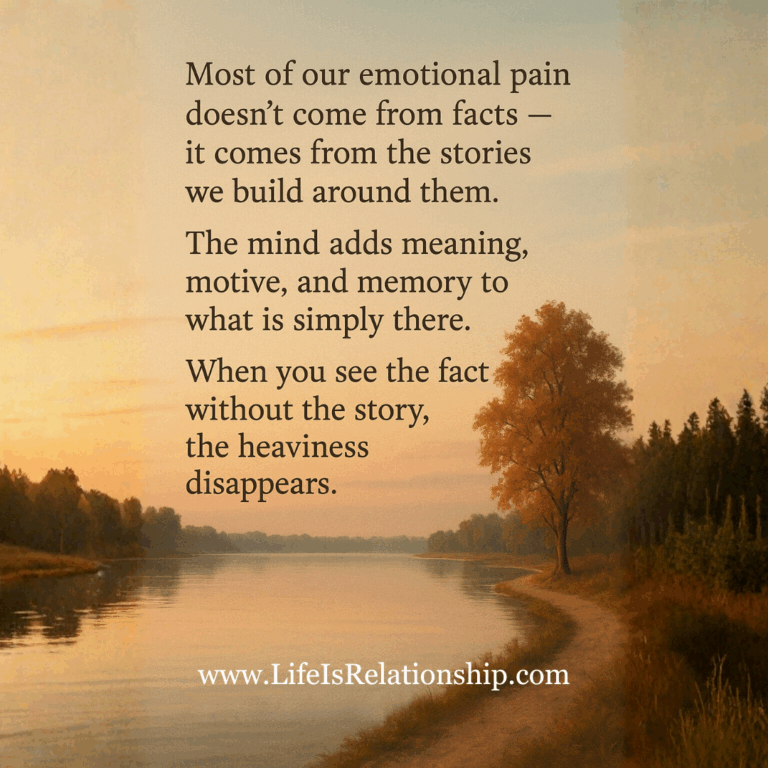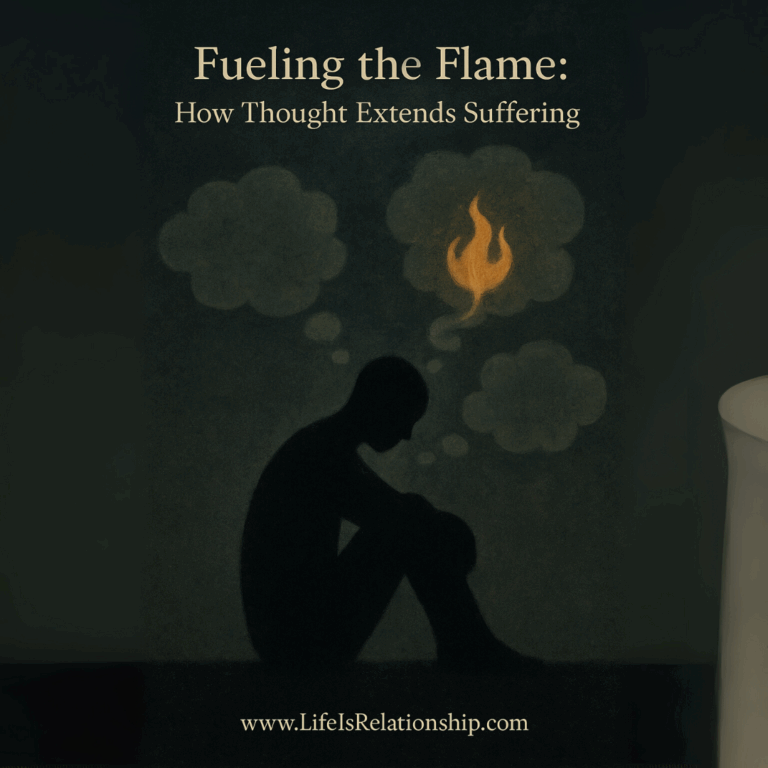Life span gets divided into three parts, the PAST, PRESENT and the FUTURE. PAST means having existed or taken place in the period before the PRESENT and FUTURE means time that is to come. FUTURE is projected by thought on the basis of PAST experience and knowledge. No one knows what actually is going to take place in the FUTURE. PAST is over and the FUTURE is unknown. Actual living is, therefore, taking place in the PRESENT.
Living in the PRESENT means living in relationship with nature and with fellow human beings. Life is relationship. I am related one way or the other, intimately or remotely to nature and to all human beings. The quality of my life depends upon the quality of my relationship with nature and fellow human beings. Right relationship means to respond accurately which means to respond with love, care and affection. When there is mutual love and care there is joy in life.
The fact is that human beings do not live in healthy and harmonious relationship with each other. Conflicts in relationships spoil the beauty of living in the PRESENT. Any type of conflict brings about pain, misery and suffering. It is a fact that the way we think and the way we act has a direct bearing on our relationships. Thinking is conditioned by the culture in which we live. It is shaped by numerous influences. Religious dogmas, economic situation, education and social pressures condition our thinking. We are shaped quite firmly by the cultural mould.
There is hardly a moment when we see something with a fresh mind. Perception takes place through the screen of past knowledge and experience. Each person forms an outlook and a view of life and that view is not just a theoretical view but an operational one that affects to a great extent the person’s perceptions and responses. Quality of living NOW depends upon the pre-existing condition of the mind. A person who really wants to live fully and completely, without any conflict in the PRESENT must pay close attention to the way in which PAST knowledge and experience interferes with the free flow of love and affection.
Suppose someone says something or does something that hurts my feelings or it triggers in the mind feelings of anger, resentment, hate, anxiety, fear or jealousy. Obviously these feelings disturb the equanimity of the mind. I take it for granted that the other person is responsible for creating these feelings. The fact is that such feelings arise as a result of interaction between two minds. Before I blame the other person it would be wise on my part to see how my own mind is contributing to the problem.
When a person does something that goes against my interest and against my expectations I get angry and I immediately declare the other person to be selfish not realizing that to expect the other person to behave in a certain way is also a selfish act. Differences in self-interests, values, beliefs, ideas, opinions, prejudices, likes and dislikes create conflict. But it is important to realize that the process of thinking that
creates differences and conflict is the same in all human beings. A person who is serious must pay attention to the root cause of the problem. There is no way that a problem can be solved unless there is clarity of perception.
One of the main characteristics of our thinking is the act of comparison. Worth and value of each person is determined on the basis of comparison. Each person forms in his mind an image about himself and images about other people and each person makes an evaluation and judgment of other people on the basis of views that he has already formed. Since childhood the mind has been trained to compare. Parents, culture, education system encourage comparison. Mind is conditioned to think that comparison is necessary for growth. But the fact is that the so called “progress” that human beings claim to have made is the cause of inequality and injustice in the world.
Comparison leads to competition. Comparison creates the desire to succeed and the desire to become “more” than what one is. It makes the mind aggressive and ambitious. Society encourages competition through the system of reward and punishment. Achievement of power, position, prestige and status and the pursuit of personal pleasure becomes the aim of life. Process of comparison creates differences and division. It encourages self-centered approach to life. Self-centered approach to life denies love.
The idea of what I think “I am” is not based on any solid ground. The image that thought has created is always in need of outside support. In order to exist it needs recognition, approval and appreciation. When a person does not get what he wants he or she gets hurt and feels frustrated and dissatisfied. Desire to be valued by others, craving to be loved and the need for applause indicate inward insufficiency and incompleteness. Obviously when expectations are not met there is a feeling of sadness, loneliness and isolation. Psychological dependence on others in order to feel good creates in the mind fertile ground that can produce fear, jealousy, anger, anxiety and hate at the slightest hint of being neglected.
Psychological dependence on others can never bring about happiness. Happiness is the product of sane and intelligent living without feeling any need to compare oneself with others in order to fit into the pattern created by the society. There should be no need to feel “more” than the other. Such a feeling makes the mind arrogant. Arrogance breeds division and conflict. There should also be no need to feel “less” as compared to another. What is the point of downgrading oneself and cursing oneself?
No one knows what exactly is going to happen in the FUTURE. But one thing is certain if no realization and change takes place NOW in the way in which a person thinks, thinking will continue to operate automatically, mechanically, out of sheer habit on the basis of ideas that have already been formed













